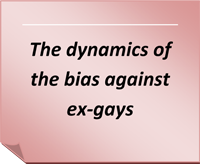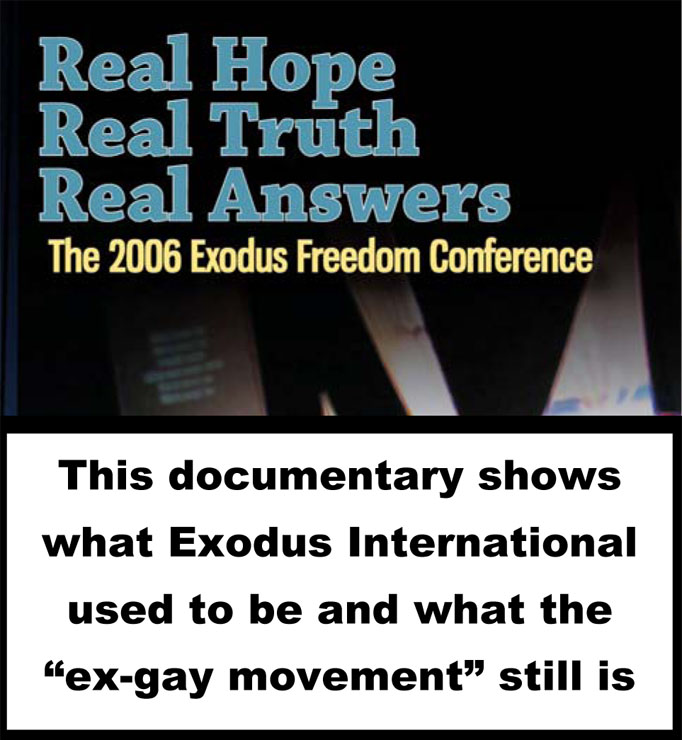Dr. Stanton L. Jones analysis of current same-sex science
February 21, 2012
Here are a couple excerpts from Dr. Stanton Jones’ scholarly article on the knowledge base of homosexuality (published in the February issue of First Things):
“I conclude that homosexual orientation is, contrary to the supposed consensus, sometimes mutable. ‘Homosexuality’ is a multifaceted phenomenon; there are likely many homosexualities, with some perhaps more malleable than others. Not all interventions are the same; not all practitioners are equally skilled. Perhaps most important, those seeking change vary considerably in their intensity of motivation, in their resourcefulness, and in the context in which they try to change. Most of those seeking change and most of those who actually attain some level of change are highly religiously committed, and these individuals who believe in a God who intervenes in their lives are embedded in communities of care and are motivated by their core understanding of who they are as a person before God. It is a wonder that anyone without such resources successfully obtains sexual-orientation change.”
… “So where does this leave us? We know much more now than we did ten and thirty years ago about the emotional well-being of homosexual persons, the complicated interaction of nature and nurture in the causation of sexual orientation, of the complicated and difficult possibilities of sexual-orientation malleability, of the functional and descriptive characteristics manifest in same-sex partnerships, and of the contours of the psychological identities of homosexual persons. The contributions of science to this area, however, remain sketchy, limited, and puzzling. It is remarkable how little scientific humility is in evidence given the primitive nature of our knowledge.”
“Nevertheless, our culture is polarized between those relentlessly advancing the full acceptance and normalization of homosexuality, indeed of all sexual variations, and those resisting those moves. As religious believers, we must confess our own culpability in creating the mess we are in.”
“We were complicit, even if ignorantly and passively so, in the cultural embrace of the disease conceptualization of homosexuality. We off-loaded responsibility for the articulation of a thoughtful, caring, theologically rich, and pastorally sensitive understanding of sexual brokenness grounded in our various religious traditions by conceptualizing homosexuality as a disease, and so we were unprepared for the vacuum created by that explanation’s timely demise. The best ecclesiastical, professional, legal, and social policy will be founded not on falsehoods or grotesque and indefensible simplifications but on a clearheaded grasp of reality in all its complexities, as well as on a humble recognition of all that we do not know.”




